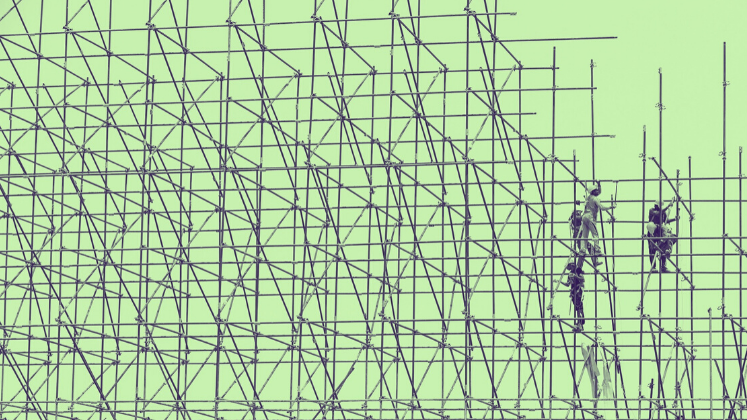Coronavirus has had a global impact and has affected every aspect of academic and university life. Chris Smith and Deirdre Watchorn have surveyed 3,200 scholarly authors across 80 countries. They found that the impacts of changes to working conditions might not be experienced equally – and this inequality was divided along gender lines.
De Gruyter is an international, independent academic publisher. Operating for over 270 years, we publish more than 1,300 new book titles each year and over 900 journals. At the start of lockdown, we surveyed 3,200 of our scholarly authors to understand how Coronavirus was affecting them professionally – and personally. We wanted to understand how the virus was impacting their capacity to conduct research, where these pressures were coming from and how we, as an academic publisher, might be able to help.
Conducted over May 2020 across 80 countries, the research found that the pandemic had left academic authors with less time for their research and busier than ever. We also uncovered a worrying trend that female academics and those with caring responsibilities were struggling the most.
Around half of respondents to our research said they had ‘no time at all’ or ‘less time’ for research and writing than they had before lockdown – but female scholars reported far greater time pressures than their male colleagues. We also found that the majority (66%) of researchers said they could only continue with their writing and research with ‘significant limitations’ on both their time and capacity – and again, there was a gender divide.
The lockdown is easing across Europe but questions still remain – especially as local outbreaks still cause uncertainty: are researchers still struggling and is gender playing a role? Have the pressures changed and importantly, what might the long-term impact be? Before we consider these questions more fully, we’d like to share our baseline findings.
Four findings from the survey
1.The shift to online teaching impacts everyone- but some more than others
“My experience so far is that far more preparation time will be required for teaching online”.
Whilst the reasons behind the limitations and time pressures were many and varied – as we will explore – one important factor that affected all scholars was the switch to online teaching and remote student supervision.
Researchers told us that the shift to online teaching was the biggest hurdle to research productivity. Familiarising themselves with new systems, organising online lessons and supervising students digitally were all posing big obstacles to business as usual.
However, the research indicates that those academics who were working and teaching from home who also had other domestic, home-schooling or caring responsibilities were being significantly impacted.
2.Working from home is not working for some
“I don’t have childcare and my contract’s ending but I can’t reasonably apply for new jobs without childcare – it’s a vicious cycle”.
Whilst unfamiliar online teaching platforms might by tricky to navigate and so increase workloads in the short term, these early struggles may have passed for some. Arguably more significant problems were being caused – and still may be – because of where researchers must attempt to work and teach from – namely, their homes.
Many authors reported having incompatible or inadequate home-work environments, either because of the disruptions caused by busy domestic situations or because home-work spaces weren’t appropriate for academic endeavour.
Working from home was particularly testing for academics who were also caring for others or homeschooling their own children. Female scholars wishing to conduct research from home were more likely than men to be limited by caring responsibilities and to say that family responsibilities and home schooling were their main obstacles to productivity. This gender divide suggested at the time that women were still bearing the brunt of domestic duties – hampering research productivity and potentially, impacting career success.
3.Disciplines are being impacted differently
“I have no access to paper (as opposed to digitized) archives, no way to do field research – all my conferences have been cancelled”.
Our research found that academics from different disciplines and perhaps at different stages of their careers struggle in different ways to access the essential resources and facilities they need to conduct their research – and share it.
Whilst some academic facilities such as libraries, labs and archives are opening up with social distancing measures in place – others remain shut or with restricted access. In-person conferencing remains severely curtailed.
Nearly half of all respondents cited reduced access to physical facilities as the biggest obstacle to their research and writing. Humanities scholars were significantly affected as they were unable to access essential non-digitised resource libraries, older books, archives or physical collections. Researchers who had to conduct face-to-face interviews, group work or engage in fieldwork were also severely hampered.
Lockdown was also having a significant impact on those scholars who depend on conferences and events for their work. For example, early career researchers often depend on conferences to grow their networks, find collaborators, build their profiles and get noticed 55% of academics said their top concern was being unable to travel and attend conferences however, this might impact individuals differently depending on career stage.
4. Some academics are thriving in lockdown (but they tend to be men)
“I usually spend 2.5 hours commuting every day, now I’m teaching from home, I have that extra time to write – and no disturbances”.
Whilst nearly 60% of academic authors said that the global pandemic was leaving them feeling anxious and uncertain about the future with precious little time to write, thankfully, not everyone was finding it hard to be productive.
Around a quarter of authors found it easier to dedicate deep work time to their research and writing with the vast majority citing the lack of faculty, management and student meetings as the reason. Whilst this should be welcomed, it should be noted that most of these scholars were men.
In fact, 27% of male scholars said lockdown was providing them with more time to research and write compared to 18% of female academics. Whilst nearly a quarter of male academics surveyed say they could continue working with no restrictions during lockdown, just 15% of female scholars said the same.
The pandemic impacts everyone – but not equally
Coronavirus has had a global impact and has affected every aspect of academic and university life. However, this survey has taught us is that the impacts might not be experienced equally – and this inequality was divided along gender lines, at least in the early stages of lockdown.
Whilst some academic authors were using lockdown as a fruitful period to concentrate on their research and writing, many more were struggling to balance work and caring responsibilities and their research was suffering. Whilst some academics had the work spaces and resources they needed to continue with their work, others were hampered – often severely.
As an academic publisher committed to nurturing research talent and encouraging a plurality of voices, these findings are important – but concerning. The question now is whether these inequalities are continuing and whether there might be a long-term impact along gender and career-stage lines – something we will investigate over the coming year.
Note: This article gives the views of the author, and not the position of the LSE Impact Blog, nor of the London School of Economics. Please review our comments policy if you have any concerns on posting a comment below
Image credit: eluoec via Unsplash









2 Comments